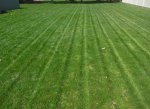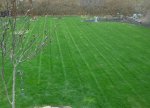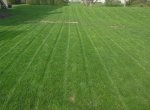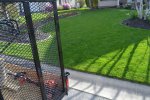I've been doing some research on aerating lawns. I found the following information, which describes the benefits of this process. I thought you would be interested.
Helps control thatch build up
Improves the soil structure
Helps create growth pockets for new roots (your lawn can easily have dead patches if you don't aerate)
Opens the way for water and fertilizer to get into the root zone.
That sounds very good.
One thing, what the dickens if "thatch"?:confused2:
Helps control thatch build up
Improves the soil structure
Helps create growth pockets for new roots (your lawn can easily have dead patches if you don't aerate)
Opens the way for water and fertilizer to get into the root zone.
That sounds very good.
One thing, what the dickens if "thatch"?:confused2:







